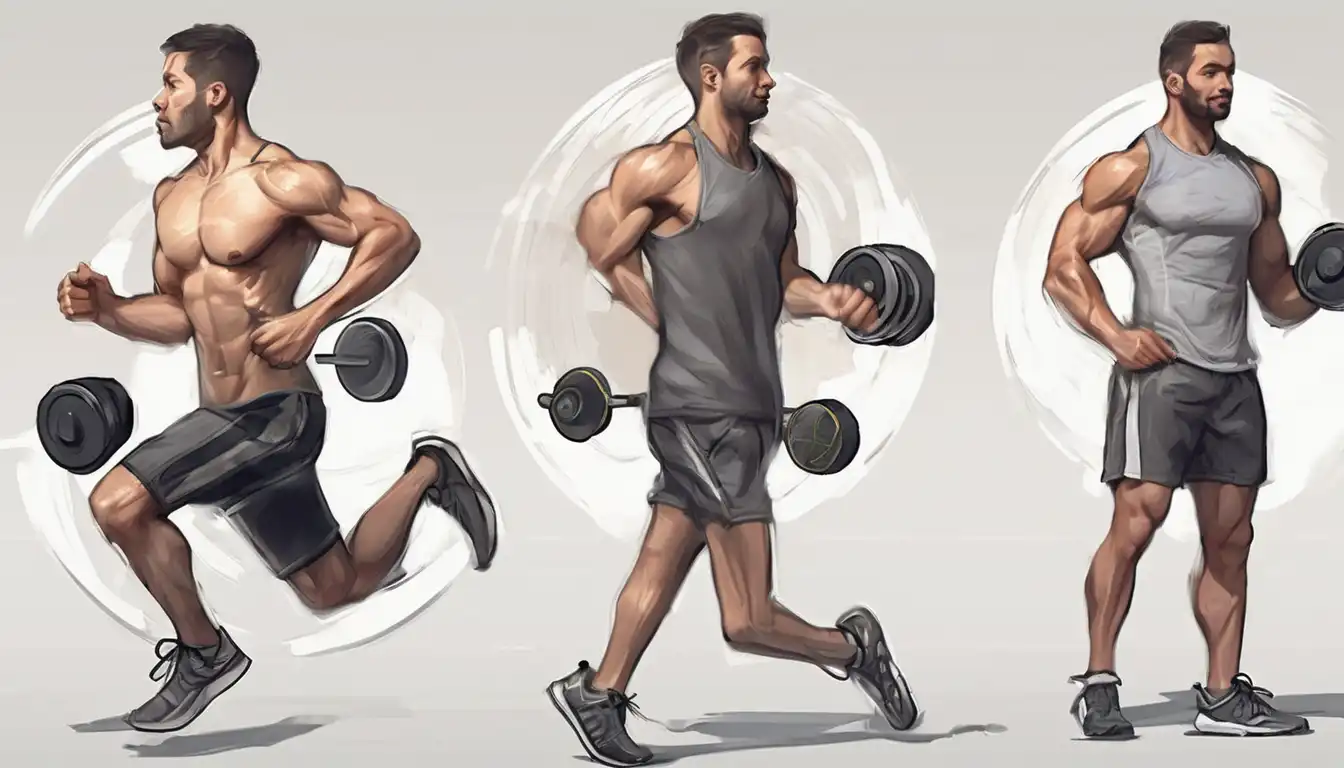Your First Steps to Building a Sustainable Fitness Plan
Starting a fitness routine can feel overwhelming, especially if you're new to exercise. The good news is that anyone can begin their fitness journey with the right approach and mindset. This comprehensive guide will walk you through everything you need to know to create a sustainable fitness plan that works for your lifestyle and goals.
Why Starting a Fitness Routine Matters
Regular exercise offers numerous benefits beyond just weight loss. Consistent physical activity improves cardiovascular health, boosts energy levels, enhances mood through endorphin release, and reduces stress. According to health experts, even moderate exercise can significantly impact your overall well-being. The key is consistency rather than intensity when you're just beginning.
Assessing Your Current Fitness Level
Before diving into any workout program, it's crucial to honestly evaluate your current fitness level. Consider factors like your endurance, strength, flexibility, and any physical limitations. This assessment will help you set realistic goals and avoid injury. If you have any health concerns, consult with a healthcare professional before starting your fitness journey.
Setting SMART Fitness Goals
Effective goal-setting is the foundation of a successful fitness routine. Use the SMART framework to create goals that are Specific, Measurable, Achievable, Relevant, and Time-bound. Instead of vague goals like "get fit," aim for specific targets such as "walk 30 minutes daily" or "complete three strength training sessions per week." Remember to celebrate small victories along the way to maintain motivation.
Choosing the Right Type of Exercise
There are four main types of exercise to incorporate into your routine:
- Cardiovascular exercise improves heart health and endurance
- Strength training builds muscle and boosts metabolism
- Flexibility exercises enhance range of motion and prevent injury
- Balance training improves stability and coordination
A balanced routine should include elements from each category. For beginners, focus on finding activities you enjoy to increase adherence.
Creating Your Weekly Workout Schedule
Structure your week with variety to prevent boredom and overuse injuries. A sample beginner schedule might include:
- Monday: 30-minute brisk walk or light cardio
- Tuesday: Full-body strength training
- Wednesday: Active recovery (yoga or stretching)
- Thursday: 30-minute cardio session
- Friday: Strength training focus
- Saturday: Fun activity (dancing, hiking, swimming)
- Sunday: Complete rest day
Remember that consistency matters more than perfection. Even shorter, more frequent workouts can yield significant results.
Essential Equipment for Beginners
You don't need an expensive gym membership to start your fitness journey. Basic equipment can include:
- Comfortable athletic shoes
- Exercise mat for floor work
- Water bottle for hydration
- Resistance bands or light dumbbells
- Comfortable workout clothing
As you progress, you might consider investing in additional equipment, but these basics will serve you well in the beginning stages.
Proper Form and Technique
Learning correct exercise form is crucial for preventing injuries and maximizing results. Focus on:
- Maintaining proper posture during all exercises
- Controlling movements rather than using momentum
- Breathing consistently throughout exercises
- Starting with lighter weights to master technique
Consider working with a certified personal trainer initially or using reputable online resources to learn proper form.
Nutrition and Hydration Basics
Exercise and nutrition work together to support your fitness goals. Key considerations include:
- Staying hydrated before, during, and after workouts
- Eating balanced meals with adequate protein for muscle recovery
- Timing meals appropriately around your workouts
- Listening to your body's hunger and fullness cues
Proper nutrition will fuel your workouts and support recovery, making your fitness routine more effective.
Overcoming Common Beginner Challenges
Many beginners face similar obstacles when starting their fitness journey. Here's how to address them:
- Lack of motivation: Find an accountability partner or track your progress
- Time constraints: Break workouts into shorter sessions throughout the day
- Soreness: Incorporate proper warm-ups and cool-downs
- Plateaus: Vary your routine every 4-6 weeks
Remember that setbacks are normal, and the most important thing is to keep moving forward.
Tracking Your Progress
Monitoring your improvements helps maintain motivation and allows you to adjust your routine as needed. Consider tracking:
- Workout frequency and duration
- Strength improvements (weights lifted, repetitions completed)
- Cardiovascular endurance (distance covered, time improvements)
- How you feel physically and mentally
- Body measurements (optional, if relevant to your goals)
Celebrate non-scale victories like increased energy, better sleep, and improved mood alongside physical changes.
When to Progress Your Routine
As your fitness improves, you'll need to challenge your body with increased intensity or variety. Signs it's time to progress include:
- Exercises feeling noticeably easier
- Ability to complete more repetitions or longer durations
- Decreased muscle soreness after workouts
- Consistent attendance at your scheduled workouts
Gradually increase intensity by adding weight, increasing duration, or trying new exercises to continue seeing results.
Staying Motivated Long-Term
Building lasting fitness habits requires strategies to maintain motivation:
- Set new goals as you achieve existing ones
- Vary your routine to prevent boredom
- Find activities you genuinely enjoy
- Focus on how exercise makes you feel rather than just appearance
- Connect with a fitness community for support
Remember that fitness is a journey, not a destination. Be patient with yourself and recognize that consistency over time yields the best results.
Final Thoughts on Starting Your Fitness Journey
Beginning a fitness routine is one of the most rewarding investments you can make in your health. Start slowly, listen to your body, and focus on building sustainable habits rather than pursuing quick fixes. Every workout, no matter how small, contributes to your overall progress. For more guidance on specific exercises, check out our basic exercises guide or explore home workout options if you prefer exercising in private. Remember that the best fitness routine is the one you'll actually stick with consistently.
